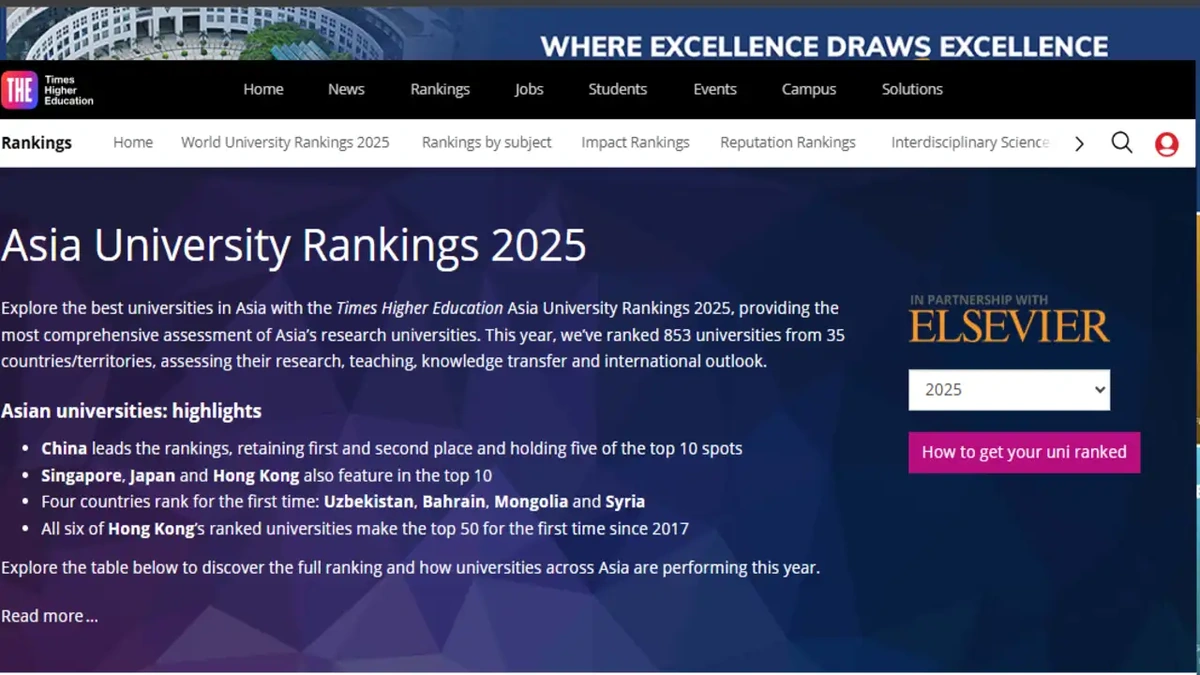Decoding College Rankings | More Than Just a Number
So, you’re staring at those college rankings, huh? Let’s be honest, they can feel like the ultimate judgment day for your academic future. But here’s the thing: rankings are a piece of the puzzle, not the whole shebang. I initially thought this was straightforward – ‘top rank equals best college’ – but then I realized it’s way more nuanced than that.
Why College Rankings Matter (and Why They Don’t)

Okay, let’s dive into the ‘why’ behind the hype. Why do college rankings have such a hold on us? Well, for starters, they offer a seemingly easy way to compare institutions. Think of it as a shortcut – a quick glance instead of hours of research. They also carry social cachet. Let’s be real, there is a certain pride that comes with saying you go to a ‘top-ranked’ school. But, and this is a big but, relying solely on rankings can lead you astray.
These lists often prioritize factors that don’t necessarily translate to a great learning experience for you. Things like research output, faculty publications, and endowment size – important for the university’s prestige, sure, but do they directly impact your day-to-day learning? Maybe not. It’s like buying a fancy car based on its horsepower when all you need is a reliable ride to work. Plus, different ranking systems use different methodologies, leading to wildly different results. It’s enough to make your head spin!
Beyond the Numbers | Finding Your Fit
So, how do you navigate this maze? Easy, start by focusing on what you need. What kind of learning environment thrives? Big lecture halls or small, interactive classes? A bustling campus in the heart of a city or a quiet, residential setting? What programs are truly excellent for your specific field of study? Because finding your fit is more important than chasing a number.
Here’s the thing I’ve noticed talking to students over the years: student-faculty ratio matters more than ever. A large alumni network can also provide benefits when you’re searching for a job. A common mistake I see people make is neglecting campus culture. Visit the campuses, talk to current students, and get a feel for the place. Does it feel like somewhere you can call home for the next few years? Remember, you’re not just choosing a college, you’re choosing a community. Also consider the proximity of colleges to your hometown and if you want to stay closer to family.
The Indian Context | A Different Perspective
Now, let’s talk about the Indian context. Indian college rankings , like the NIRF (National Institutional Ranking Framework), offer valuable insights, but they should be viewed through a specific lens. These rankings often prioritize factors like research and infrastructure, which are important, but might overshadow other crucial aspects like teaching quality and student support. Remember that a high NIRF ranking doesn’t automatically guarantee a great experience. It’s just one piece of the puzzle.
What fascinates me is how much emphasis Indian families place on reputation and brand name. While a reputable institution can open doors, don’t underestimate the power of a lesser-known college with a strong program in your chosen field. The playing field is leveling, and many smaller colleges are offering incredible opportunities and personalized attention. And, when considering top engineering colleges or top medical colleges, look at the specific departments and faculty within those institutions.
Actionable Steps | Using Rankings Wisely
Alright, let’s get practical. How can you use college rankings without letting them dictate your future? First, identify your priorities. What’s most important to you in a college experience? Academic rigor? Research opportunities? Extracurricular activities? Location? Once you have a clear picture of what you’re looking for, you can start evaluating colleges based on those criteria.
Second, look beyond the overall ranking. Dig into the specific metrics used by different ranking systems. Are they measuring things that are actually relevant to you? For example, if you’re interested in research, look at the college’s research output and funding. If you value teaching quality, see if the ranking system considers student-faculty ratio or teaching awards. Consider the location and distance from your family and support network.
Don’t Overlook the Hidden Gems
Finally, don’t be afraid to consider colleges that aren’t at the very top of the rankings. There are countless hidden gems out there – colleges that offer excellent programs, supportive communities, and incredible opportunities, but simply don’t have the same name recognition as the elite institutions. These colleges can often be a better fit for students who are looking for a more personalized experience.
I initially thought this was straightforward, but then I realized… the best college is the one where you can thrive, learn, and grow. It’s about finding a place where you feel challenged and supported, and where you can pursue your passions with enthusiasm. Don’t let the numbers define your future. Let your dreams guide you. Check out this article on college and university rankings . That’s the key to making the right choice.
FAQ | College Rankings Demystified
How much weight should I give to college rankings?
Rankings are a starting point, not the final word. Consider them alongside your personal preferences and academic goals.
What if my dream college has a lower ranking?
If it aligns with your priorities and offers a great fit, don’t let the ranking deter you.
Are Indian college rankings reliable?
They provide valuable insights but consider them alongside other factors like teaching quality and student feedback.
What are some alternative ways to evaluate colleges?
Visit campuses, talk to current students, and research specific departments of interest.
Should I only apply to top-ranked colleges?
Cast a wide net and include colleges that align with your interests and goals, regardless of ranking.













